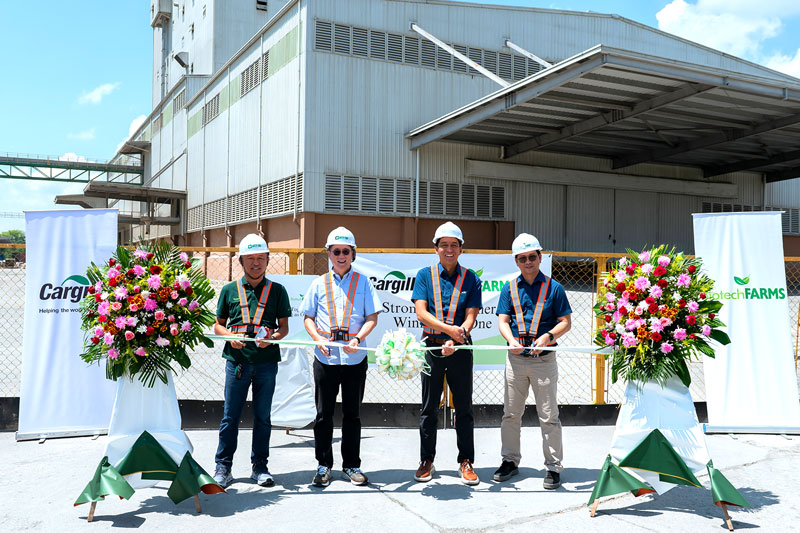A new chapter in delivering reliable, high-quality nutrition solutions to customers in the region

MANILA – Cargill is further strengthening its presence in Mindanao, with a new feed production partnership with Biotech, a state-of-the-art facility located at the Biotech Agro-Industrial Complex in Tantangan, South Cotabato. This strategic collaboration reflects Cargill’s continued investment in one of the country’s most vital agricultural regions, aimed at delivering faster, more reliable, and high-quality feed solutions to better serve customers.
Mindanao is one of the most dynamic agricultural regions in the Philippines and home to a growing base of animal farmers, producers, and agribusinesses. By establishing a dedicated production line at the Tantangan Plant, Cargill aims to strengthen its foothold in the region and the country’s food system.
“This is about serving our Mindanao customers better — with the reliability, responsiveness, and quality they deserve,” said Sonny Catacutan, Senior Managing Director for Cargill Animal Nutrition & Health Philippines. “The Tantangan Plant gives us a stronger presence in a region essential to the future of the local agricultural industry. It allows us to enhance service to our customers and live our purpose of nourishing the world starting with every bag of feed. We’re excited about what this partnership brings, not just in operational capability, but in helping us create more impact for customers, farmers, and communities that depend on us every day.”
Selected through a rigorous evaluation process aligned with Cargill’s global standards in food and feed safety, quality, and operational excellence, the Tantangan feed mill features modern milling technology, proven high-performance production, and a dedicated monthly feed output to meet the growing demand in the region.
With production now fully operational, the Tantangan Plant partnership reinforces Cargill’s expanded footprint and supply chain resilience in Mindanao while accelerating capabilities to deliver tailored, safe, and sustainable nutrition solutions at scale.
“This partnership is a testament to our shared mission of empowering Mindanao’s farmers with innovative, sustainable solutions,” said Rey Chiang, CEO of Biotech Farms. “Since 2001, Biotech has been at the forefront of transforming Philippine agriculture through precision farming, renewable energy, and circular economy practices. Together with Cargill, we will amplify our impact—ensuring farmers receive high-quality, tailored feed nutrition solutions using Cargill’s cutting-edge research, data-driven insights, and a vast supply chain network that not only boosts productivity but also aligns with our commitment to environmental stewardship and community upliftment.”
As production ramps up at Tantangan feed mill, the partnership signals an important step forward for Cargill in nourishing the world in a safe, responsible, and sustainable way. With 77 years of doing business in the Philippines, Cargill continues to strengthen its presence while staying rooted in its core to help farmers succeed and communities to prosper. (PR)



